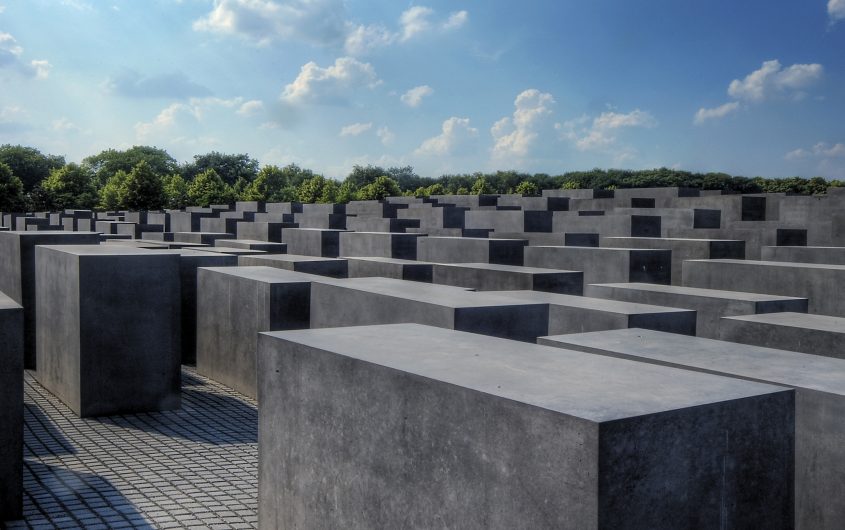
Wolfgang Staudt via Flickr
Germany’s Memory Culture and the Alternative for Germany

Eric Langenbacher
Senior Fellow; Director, Society, Culture & Politics Program
Dr. Eric Langenbacher is a Senior Fellow and Director of the Society, Culture & Politics Program at AICGS.
Dr. Langenbacher studied in Canada before completing his PhD in Georgetown University’s Government Department in 2002. His research interests include collective memory, political culture, and electoral politics in Germany and Europe. Recent publications include the edited volumes Twilight of the Merkel Era: Power and Politics in Germany after the 2017 Bundestag Election (2019), The Merkel Republic: The 2013 Bundestag Election and its Consequences (2015), Dynamics of Memory and Identity in Contemporary Europe (co-edited with Ruth Wittlinger and Bill Niven, 2013), Power and the Past: Collective Memory and International Relations (co-edited with Yossi Shain, 2010), and From the Bonn to the Berlin Republic: Germany at the Twentieth Anniversary of Unification (co-edited with Jeffrey J. Anderson, 2010). With David Conradt, he is also the author of The German Polity, 10th and 11th edition (2013, 2017).
Dr. Langenbacher remains affiliated with Georgetown University as Teaching Professor and Director of the Honors Program in the Department of Government. He has also taught at George Washington University, Washington College, The University of Navarre, and the Universidad Nacional de General San Martin in Buenos Aires, Argentina, and has given talks across the world. He was selected Faculty Member of the Year by the School of Foreign Service in 2009 and was awarded a Fulbright grant in 1999-2000 and the Hopper Memorial Fellowship at Georgetown in 2000-2001. Since 2005, he has also been Managing Editor of German Politics and Society, which is housed in Georgetown’s BMW Center for German and European Studies. Dr. Langenbacher has also planned and run dozens of short programs for groups from abroad, as well as for the U.S. Departments of State and Defense on a variety of topics pertaining to American and comparative politics, business, culture, and public policy.
__
Issue Brief 62
For decades, the dominant narrative about the evolution of collective memory in the Federal Republic of Germany has been that after several decades of silence, evasion, and amnesia, new generational actors (the student rebel generation or 68ers) as well as voices from abroad (U.S. government, Jewish communities in Israel and beyond) began to thematize and foreground the crimes of the Nazi past by the late 1960s forcing a confrontation with Nazi-era crimes. This Holocaust-centered memory slowly gained prominence (despite some conservative pushback) throughout the 1980s and then became highly institutionalized as a hegemonic memory after reunification.
I have argued that this narrative needs to be partially modified. First, some efforts to work through the Nazi past began rather early. For example, the Luxembourg Agreement of 1952 during the very first term of the Bundestag started the compensation and reparations process, which by the end of 2019 had amounted to approximately 78 billion euros. Second, the memory of German suffering (bombings, expulsion, division, POWs, mass rape) was rather hegemonic in the first postwar decades. A long competition between this memory of German suffering and the memory of German crimes was resolved in favor of Holocaust memory around the time of the Historians’ Dispute (Historikerstreit) in the mid-1980s. Holocaust-centered memory has maintained its hegemony after reunification despite a temporary return of the memory of German suffering around the turn of the century, as well as new competitors such as memory of East Germany. Increasing distance to the events and changing demographics, given the rising share of Germans with a migration background, could erode this hegemony in the future.
The much-vaunted German memory culture can be considered an example of “mnemonic pluralists,” practicing respect for alternative views and actors, ready to discuss and negotiate—albeit based on the fundamental hegemony of Holocaust-centered memory. The AfD—like other right populists in Europe and globally, particularly the PiS in Poland or Donald Trump in the United States—are “mnemonic warriors,” believing that memory is non-negotiable because there is only one “true” vision of the past. Warriors do not want to accommodate alternative visions of the past, but rather to defeat and delegitimize them.
This publication is made possible by the generous supporters of the AGI Harry & Helen Gray Culture & Politics Program.








